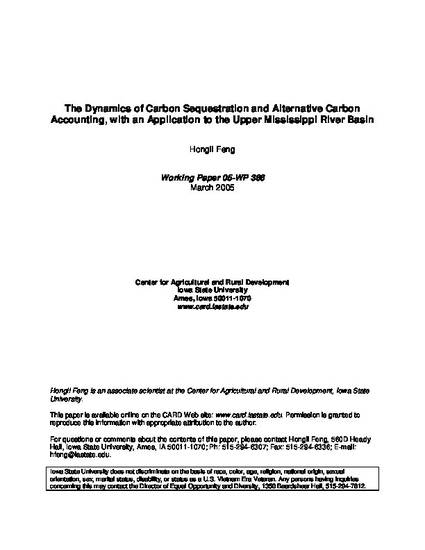
Carbon sequestration is a temporal process in which carbon is continuously being stored/released over a period of time. Different methods of carbon accounting can be used to account for this temporal nature including annual average carbon, annualized carbon, and ton-year carbon. In this paper, starting by exposing the underlying connections among these methods, we examine how the comparisons of sequestration projects are affected by these methods and the major factors affecting them. We explore the empirical implications on carbon sequestration policies by applying these accounting methods to the Upper Mississippi River Basin, a large and important agriculture area in the US. We found that the differences are significant in terms of the location of land that might be chosen and the distribution of carbon sequestration over the area, although the total amount of carbon sequestered does not differ considerably across programs that use different accounting methods or different values of the major factors.
Available at: http://works.bepress.com/hongli-hennessy/55/

This is a working paper of an article published as Feng, Hongli. "The dynamics of carbon sequestration and alternative carbon accounting, with an application to the upper Mississippi River Basin." Ecological Economics 54, no. 1 (2005): 23-35. doi:10.1016/j.ecolecon.2005.02.003. Posted with permission.